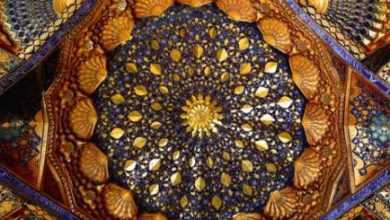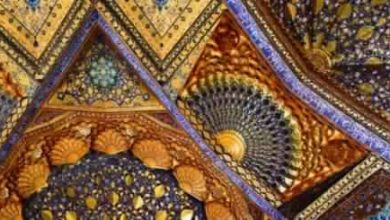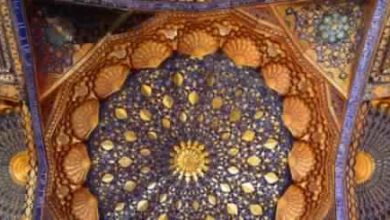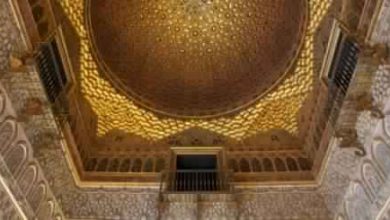THE ESSENCE OF HAJJ – PART 1
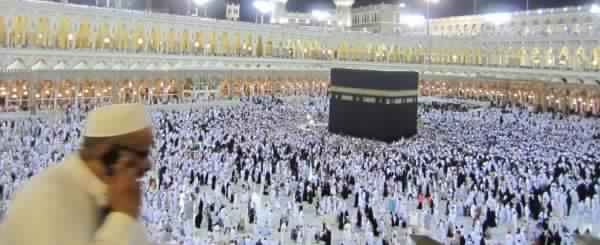
Physical Diseases v Diseases of the Heart
Today, I received a phone call. Someone is ill. We discuss the symptoms. Phone calls are frantically exchanged between families and friends, with everyone giving their own diagnosis and medical opinion. Which doctor should we go to? What about alternative medication? Will medical insurance cover the costs? We pace back and forth while waiting for the biopsy results. Is the patient getting better or worse? Is it chronic? Is it terminal?
Our main concern is whether there will be a cure for the illness, its side effects, and all other medical technicalities. The focus is healing and the preservation of life.
Let us pause and ask ourselves – do we ever think about death and the journey after death? All the physical illnesses, and all the accompanying symptoms, in perspective, are just a dot in the timeline of our eternal existence. These occupy a short space of time compared to the journey of the soul after death, stretching beyond hundreds of millions of years, whether that journey ends in paradise or hellfire.
The early scholars said that all the illnesses of the body have one cure, which is death. After death, the physical symptoms of the disease cease. However, and this is the crucial point – for diseases of the heart, the pain only starts after death, and will persist for a long time, and for some, even for eternity.
What are these? These are not medical conditions, but diseases that we allow to fester in our spiritual hearts. Among them are kufr (disbelief), shirk (association with Allah), kibr (arrogance) stinginess, jealousy, lack of contentment, greed and lack of gratitude to Allah.
A study of Islam will reveal that every disease of the heart corresponds with minor or major sins, zulm (oppression) or even disbelief. Scholars suggest that according to the type and amount of disease in the heart, Allah will either cleanse us with physical diseases during our lifetimes, or torture us in the moment of death, or torture us in the grave for a duration determined by Him – maybe thousands of years. If these are not sufficient, torture on the Day of Judgment and torture in Hellfire will follow. If the disease is severe and deeply rooted such as kufr, shirk and kibr, it is likely that an eternity of torment is not enough.
What has this to do with hajj?
You are now thinking: “What does this have to do with hajj?”
This is exactly the point. Today, people neglect the status of their hearts. We spare no expense on medical care for ourselves and our loved ones. Yet, we appear oblivious that the diseases of the heart are far more damaging and long lasting, and this lack of awareness makes us unwilling to invest or even seek help for the cure.
We are meticulous about fitness, nutrition and calories, we care about our looks and shapes, yet we neglect to give the same amount of care for our journey after death.
You are still wondering: “We are supposed to talk about hajj!”
When someone returns from hajj, everyone asks the same questions. How was the weather? How was the hotel? Was it crowded? How was the food? Everyone was concerned about the outer issues. When I ask others about their hajj experience, the answers vary. Many talk about the physical arrangements. They can describe the hotel room and the shopping malls, but go blank when asked about how their hearts felt after the experience.
The hotel, weather and food do not matter once the journey is over. Our worry should be whether Allah granted us an accepted hajj (hajj mabrur).
The signs of an accepted hajj are not making it home safely, laden with bags of shopping and zam-zam water. It is said that if a person has been granted hajj mabrur, his priority thereafter would lean towards akhirah. He will come home with beautiful, humble manner mixed with remembrance of Allah. He will display a high amount of generosity and perform an abundance of good deeds. He will try to accumulate the most good deeds possible in order to preserve his purified status. He hopes to remain clean of sins until he dies, so that he can meet Allah with his scales of good deeds heavy and his scales of bad deeds light. This is what hajj is all about.
The journey of hajj is a journey of seeking purification and forgiveness from Allah. We embark on this journey to meet our Lord and to be cleansed from sins to the maximum extent possible. Hajj is a reminder to leave the material life: family, job, house, children, to ready us for the final destination after our death.
Allah gave us the hajj to prepare us for our meeting with Him. During this time, we uproot ourselves from dunia in order to prepare for our journey towards akhirah. It is a transformation from the accumulation of material life towards the accumulation of good deeds, of bad manners to good manners, and towards the reformation of our internal habits.
Our status in akhirah does not depend on the titles or lineage we carry on earth. Our fame in the Kingdom of Allah is earned through our good manners, generosity, and patience in the promise of Allah. Hajj is the booster granted by Allah in order to help us find our way back to Paradise.

